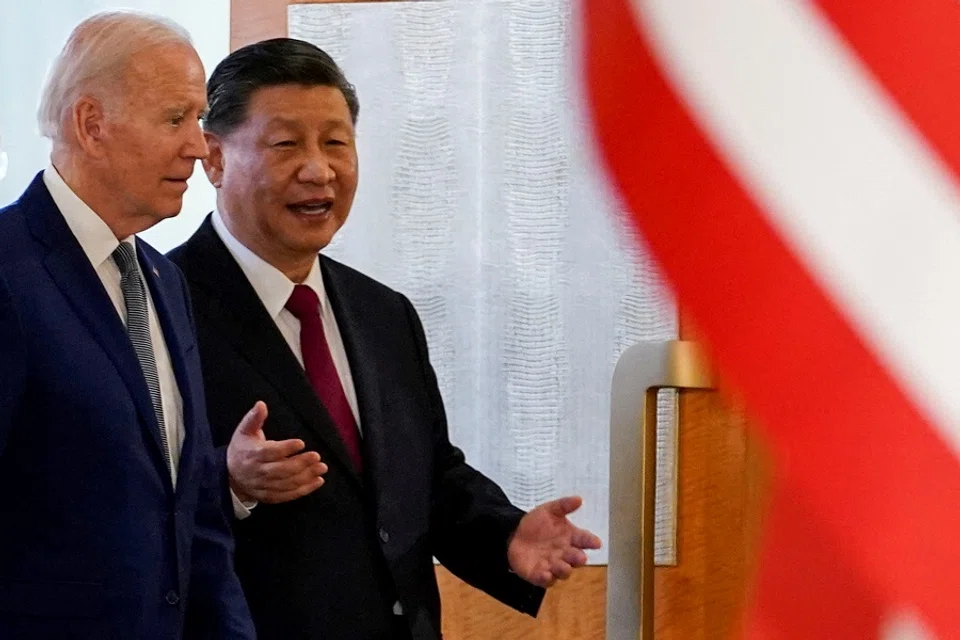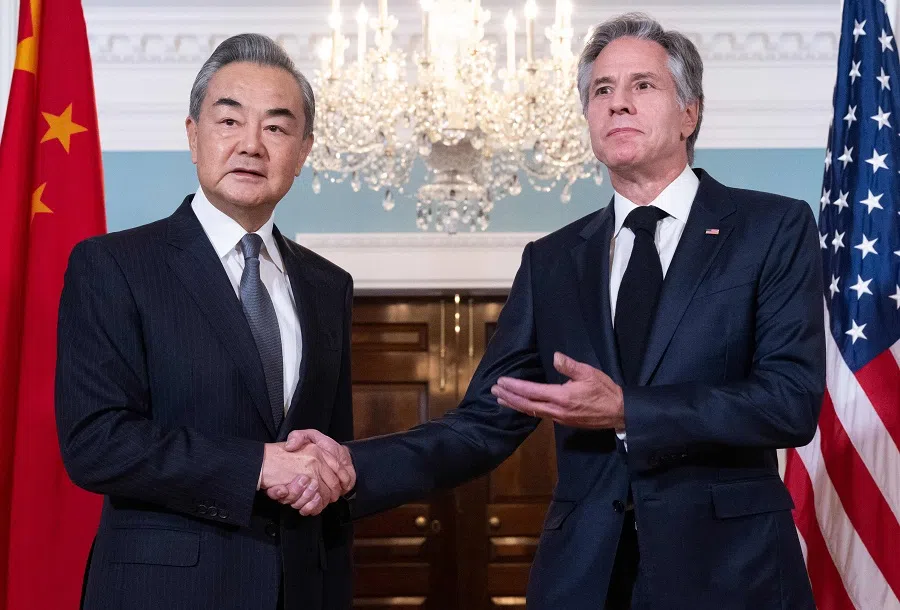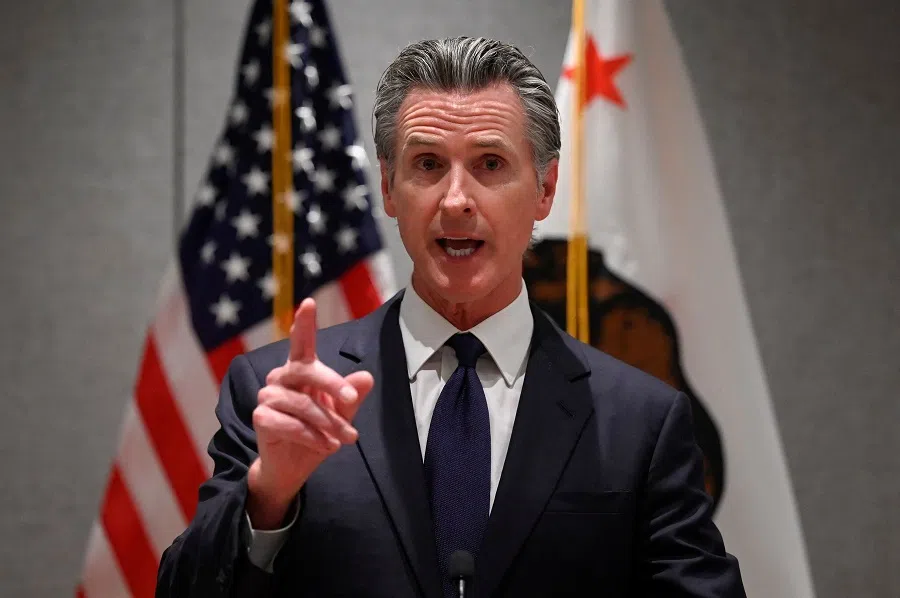What can we expect from the Xi-Biden summit?
While the US focuses on the competitive dimension of the relationship and emphasises the need to manage competition responsibly, China stresses a win-win outcome of the relationship through cooperation, says US academic Zhu Zhiqun. Will it be "never the twain shall meet" for the US and China?

Preparations for a Biden-Xi summit in San Francisco during the Asia-Pacific Economic Cooperation (APEC) meeting in mid-November are in full swing. What is the significance of the summit? What can we expect from it? And what are the challenges that lie ahead in US-China relations?
It has been an eventful year since President Joe Biden and President Xi Jinping met during the APEC conference in Bali, Indonesia in November 2022. That meeting took place three months after former US Speaker of the House Nancy Pelosi's provocative visit to Taiwan that heightened tensions in the Taiwan Strait and led to the suspension of high-level exchanges between the US and China. Realising the danger of the worsening bilateral relationship, Biden and Xi decided to meet to set "guardrails" to arrest further decline of the relationship.
A year of detours and resets
It was an important meeting at a critical juncture. Unfortunately, the Chinese "spy" balloon incident in early 2023 disrupted the bilateral relationship again, causing Secretary of State Anthony Blinken to postpone his visit to China - a visit intended to implement the consensus reached by Biden and Xi in Bali. The balloon was shot down by the US Air Force. Later on, the US side said that the balloon did not collect intelligence while flying over the US, but the damage was already done to the bilateral relationship.
He who tied the bell needs to untie it himself, says a Chinese proverb. The Biden administration took the initiative to reach out to China in mid-2023, partially concerned about further deterioration of the relationship and partially worried about how a terrible US-China relationship may affect Biden's reelection campaign. Secretary Blinken finally went to Beijing in June. Since then, Secretary of the Treasury Janet Yellen, climate change special envoy John Kerry, and Secretary of Commerce Gina Raimondo have also visited China in an attempt to rebuild dialogue with their Chinese counterparts.

It takes two to tango. The Chinese side reciprocated and grasped the opportunity to revive bilateral exchanges. China's top diplomat Wang Yi's 26-28 October visit to Washington aimed to remove final hurdles and set the stage for a Biden-Xi meeting in San Francisco. The planned Biden-Xi summit will be the culminating effort by the two sides to stabilise relations.
Xi is expected to secure Biden's reassurance that the US is not seeking a new Cold War with China and that it does not support Taiwan independence.
Setting realistic expectations
While both sides are looking forward to the summit in mid-November, one should be realistic about the outcome. The meeting will be significant in many ways, not least an opportunity for Biden and Xi to reaffirm their commitment to managing the relationship peacefully. However, headwinds are strong as the two leaders fly to San Francisco.
First, the two sides have different sets of goals and priorities. Despite the rhetorical change from "decoupling" with China to "de-risking" from China, the goal of the Biden administration's Indo-Pacific strategy remains to "outcompete" China.

In recent years, fentanyl has emerged as a leading cause of death in the US. The US government believes that China is the largest exporter of fentanyl precursors to Mexico, from where fentanyl is smuggled into the US. Biden is expected to raise this issue with Xi. He will surely touch on the human rights issue too. For China, the major concerns are economic stability and security in the Taiwan Strait and South China Sea. Xi is expected to secure Biden's reassurance that the US is not seeking a new Cold War with China and that it does not support Taiwan independence.
The summit may end up with both sides reiterating their existing positions on difficult issues without specific plans to address each other's concerns.
Domestic concerns may up the ante
With different domestic agendas, will Biden and Xi talk past each other? Or will they actually listen to each other and take actions to alleviate their respective concerns?
Second, both Biden and Xi face domestic pressures as they try to move the relationship forward. The summit may end up with both sides reiterating their existing positions on difficult issues without specific plans to address each other's concerns.
Hawks have dominated Washington's narrative about this relationship. For them, China is the biggest threat to US national interests despite the ongoing wars in Ukraine and Gaza. Bombarded with anti-China rhetoric from politicians and media, Americans' views of China remain negative, as evidenced by a recent poll showing a staggering 61% of Americans surveyed picked China as the top threat to the US.
Washington hawks do not support the Biden administration's engagement with Chinese leaders. In an interview with the Voice of America, Mike Gallagher, chair of the House Select Committee on the Chinese Communist Party, claimed that such engagement - what he called "zombie engagement" - is counterproductive and will make China more aggressive.

California governor Gavin Newsom just concluded a fruitful visit to China, promoting cooperation in climate change, energy, trade and tourism. People with common sense would agree that such exchanges and cooperation are beneficial to both sides. Not the conservatives, who even oppose local-level exchanges and argue that Newsom should have focused on human rights instead of climate change.
Despite China's longstanding policy of "peaceful reunification" with Taiwan, Xi may also face pressures from impatient generals at home. Zhang Youxia, vice-chairman of the Central Military Commission (CMC) said at the Xiangshan Forum in Beijing at the end of October that the People's Liberation Army would "show no mercy" to those who support Taiwan independence. He also alleged that the US was the primary factor behind the Russia-Ukraine war and the Israeli-Palestinian conflict.
No one expects Biden and Xi to reach any agreement on the Israel-Hamas conflict due to America's persistent pro-Israel stance and China's attempt to maintain an even-handed approach while supporting Palestinians' cause.
Missed opportunity to work together?
Finally, the international community that looks up for leadership in dealing with global challenges will be disappointed since the two great powers are unlikely to work together now.
Just like the Russia-Ukraine war, the Israel-Hamas conflict, though tragic, provides a potential opportunity for US-China cooperation. The US could use its extraordinary influence on Israel to press for de-escalation and safe delivery of humanitarian aid to Gaza, and China could take advantage of its friendly relations with both Palestine and Israel to call for an immediate ceasefire. Ultimately, the US and China should work together to help address the fundamental problems in the Middle East and seriously implement the "two-state solution".
No one expects Biden and Xi to reach any agreement on the Israel-Hamas conflict due to America's persistent pro-Israel stance and China's attempt to maintain an even-handed approach while supporting Palestinians' cause.
They are most likely to continue to disagree on contentious issues such as America's Indo-Pacific strategy and China's Belt and Road Initiative.

The two leaders may reach some consensus in areas where they have common interests such as climate change. They are most likely to continue to disagree on contentious issues such as America's Indo-Pacific strategy and China's Belt and Road Initiative.
There is little doubt that both Biden and Xi are committed to improving US-China relations, as evidenced by their respective congratulatory messages to the Gala Dinner of the National Committee on United States-China Relations on 24 October.
Unfortunately, despite a shared desire for stabilising the relationship, the two sides face huge differences that are hard to narrow. In particular, the two governments disagree on the nature of the relationship. The US side focuses on the competitive dimension of the relationship and emphasises the need to manage competition responsibly, while China stresses a win-win outcome of the relationship through cooperation.
Talking is better than fighting, but talking alone will not solve problems. In the end, do the two leaders have the wisdom and courage to initiate concrete actions to move the relationship forward and upward and enhance cooperation on bilateral and international issues? Will the two sides rebuild trust and engage in a healthy competition not a zero-sum one? Let's wait and see.


![[Big read] When the Arctic opens, what happens to Singapore?](https://cassette.sphdigital.com.sg/image/thinkchina/da65edebca34645c711c55e83e9877109b3c53847ebb1305573974651df1d13a)


![[Video] George Yeo: America’s deep pain — and why China won’t colonise](https://cassette.sphdigital.com.sg/image/thinkchina/15083e45d96c12390bdea6af2daf19fd9fcd875aa44a0f92796f34e3dad561cc)